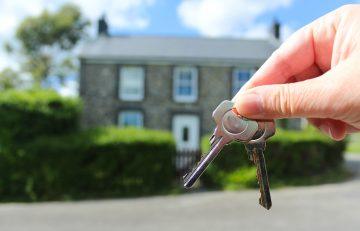The Government’s latest Quarterly Stamp Duty Land Tax Statistics report, for the second quarter (Q2) of the year, shows that the Stamp Duty relief applied to first time buyers in November 2017 saved homeowners a total of £125m when purchasing their first homes.
90% of transactions in Q2 were for residential properties, the study shows. Between Q1 and Q2, these sales increased by 4%, to 247,800 in total, but were 7% lower than in Q2 last year (266,100).
Liable residential transactions
Two-thirds of residential transactions were liable for Stamp Duty in Q2; the lowest proportion since Q1 2014. This reflects recent changes in Stamp Duty rates, the report suggests; liable transactions increased in Q2 2016 due to the new rates of tax on additional properties, but dropped in Q4 2017 due to Stamp Duty relief for first time buyers.
Liable standard rate residential sales rose by 4% to 163,400 on a quarterly basis, as a result of an increase in transactions worth between £250,000-£1m. 45% of residential transactions were valued at less than £250,000, while sales worth between £250,000-£500,000 increased by 9%, to 66,000. Transactions over £500,000 grew by 4%, to 24,100.
Additional dwellings

Stamp Duty Relief Saved First Time Buyers £125m in Q2
Additional dwellings are residential properties for which Stamp Duty is payable at the standard rate plus 3%. It applies to purchases of second homes and buy-to-let properties. These rates were introduced in April 2016.
Between Q1 and Q2, additional dwellings sales dropped by 2%, to 54,500. For the last four quarters, additional properties have formed around 31% of all liable transactions and have generally increased as a proportion of all residential sales.
63% of additional dwellings transactions in Q2 were under £250,000, marking a decline of 4%, while the amount of sales worth £250,000-£500,000 rose by 4%.
Almost half (46%) of residential Stamp Duty receipts (£896m) were from additional dwellings in Q2, of which £396m are estimated to be from the additional 3% rate.
Stamp Duty relief
Stamp Duty relief for first time buyers was introduced in November 2017, and applies to purchases of properties for £500,000 or less, provided the buyer has never owned a property and intends to occupy the home as their only or main residence. Under the relief, transactions valued at £300,000 or less are not liable. Sales worth more than £300,000, but less than £500,000, are liable to pay 5% Stamp Duty on the portion over £300,000.
The estimated total amount of first time buyer Stamp Duty relief was £125m in Q2, which is up by 18% on Q1. 52,400 (21%) residential transactions claimed the relief in Q2, marking a 15% rise on a quarterly basis. 78% (40,900) of these sales were non-liable.
Non-liable first time buyer transactions increased by 14%, while liable sales were up by 19%.
Shaun Church, the Director of mortgage broker Private Finance, comments on the figures: “Stamp Duty tax relief saved first time buyers £125m in Q2 – making the regulation a relief for new homeowners in more ways than one. Stamp Duty has been the final hurdle for first time buyers already struggling with mounting deposit costs for years. With this burden now eased or removed for most, and attractive low-rate mortgage deals for new buyers steadily trickling in, the path to homeownership is becoming clearer.
“Yet Stamp Duty continues to clog up other areas of the market. Transactions have risen quarterly, but are lower than they were this time last year. Thanks to a tunnel vision approach to Stamp Duty relief, where only first time buyers benefit, all other homebuyers – from second steppers to potential downsizers – are being dissuaded from moving due to punitive tax charges. This creates lack of movement further up the chain in an already sluggish market and, ultimately, fewer options for buyers looking to move up and down.”







